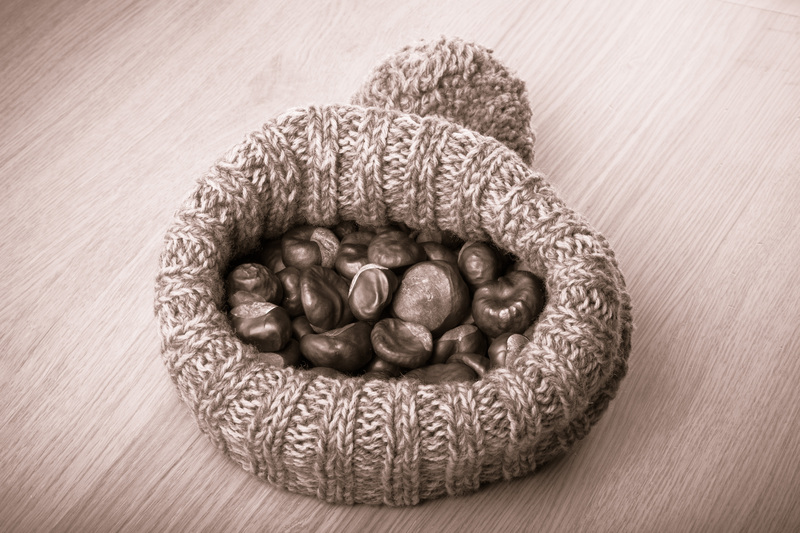Frequently Overlooked Ways to Recycle Pots and Pans
When it comes to sustainability in the kitchen, many of us diligently recycle plastic containers, glass jars, and food packaging. However, there's one kitchen essential that often gets overlooked when it reaches the end of its useful life: pots and pans. Most people aren't sure how to dispose of their old cookware responsibly, resulting in pans languishing at the back of cupboards or, worse, ending up in landfills. In this comprehensive guide, we'll explore creative and practical ways to recycle pots and pans--from eco-friendly disposal to upcycling projects and community contributions.
Why Should You Recycle Pots and Pans?
Recycling pots and pans is more important than you might think. Most cookware is made from valuable materials like aluminum, stainless steel, and cast iron. When discarded improperly, these materials can contribute to environmental pollution and the unnecessary depletion of resources. Recycling cookware not only reduces waste but also supports the circular economy by enabling the materials to be repurposed into new products. Unfortunately, the proper way to recycle these common kitchen items is often misunderstood, and many pans simply end up in regular household waste.

Common Mistakes in Recycling Cookware
- Placing pots and pans in regular curbside recycling bins: Most municipal programs don't process cookware due to their shape, size, and material composition.
- Throwing away non-stick pans: Non-stick coatings can require special handling, and tossing them in landfills can be harmful to the environment.
- Ignoring upcycling opportunities: Many pans can be reused or repurposed creatively instead of being discarded.
Frequently Overlooked Ways to Recycle Old Cookware
Let's dive into some of the less obvious yet highly effective ways to keep your old pots and pans out of landfills. These methods are not only eco-friendly, but often rewarding and fun as well!
1. Donate to Charities or Community Organizations
Donating old pots and pans is one of the easiest and most impactful ways to recycle them. Homeless shelters, community kitchens, women's refuges, and religious groups often welcome cookware donations, even if they're a bit worn out but still usable. While they may not accept items with broken handles or severe damage, lightly used pans can be given a second life with someone in need.
- Check with Goodwill, Salvation Army, and local charities.
- Contact refugee resettlement organizations or shelters directly.
- University or college campus kitchens may accept surplus cookware.
2. Upcycle into Creative Home Decor
Instead of throwing them away, transform old cookware into unique home decor. You'd be surprised just how versatile pots and pans can be!
- Wall Clocks: Attach a clock mechanism to an old pan for a rustic kitchen clock.
- Plant Holders: Repurpose big pots or smaller pans as planters for your garden or balcony.
- Bird Baths and Feeders: Cast iron pans make excellent bases for outdoor bird baths or feeders.
- Hanging Storage: Use an old colander as an overhead fruit basket or like a hanging lamp shade.
Let your creativity flow and give your old cookware a whole new lease on life.
3. Scrap Metal Recycling
Most cookware--especially stainless steel, aluminum, and copper pots and pans--can be recycled at local scrap metal centers. Metal recycling facilities process these materials efficiently, turning your old kitchenware into new products such as car parts, construction material, and even new cookware.
- Remove non-metal parts such as plastic handles or glass lids before recycling.
- Check with the center about non-stick coatings; some facilities have special processes for pans with Teflon or ceramic coatings.
Always call ahead to make sure your scrap metal recycler accepts cookware--policies can vary.
4. Repurpose for Camping or Outdoor Cooking
Old pots and pans may not be ideal for your daily kitchen needs, but they're perfect for rough-and-tumble outdoor use. Repurpose worn cookware for camping, backyard fire pits, or as backup utensils. Even slightly dented or scratched pans work great over an open flame, sparing your good pans from open-fire cooking damage.
- Leave a set in your RV or camping gear kit.
- Keep a spare for beach or picnic cookouts.
5. Offer to Metal Artists or Makers
Many local artists, welders, and makers love upcycling scrap materials into sculptures, jewelry, furniture, and art installations. Offering your old cookware to artists can spark creativity and is a great way to support your local arts scene.
- Reach out to local art schools or community "maker" spaces.
- Check online groups and classified ads for scrap material requests.
6. Organize a Community Swap Event
Do you have a collection of mismatched pots and pans cluttering your cabinets? Organize a kitchenware swap event with your neighbors, friends, or community group. What no longer suits your needs might be another home cook's treasure.
- Neighborhood Facebook groups or Nextdoor are great for organizing swaps.
- Consider including a repair station to fix wobbly handles or minor damage on site.
Swapping instead of dumping reduces waste and extends the lifecycle of countless household items.
7. Compost Bin Tools
Believe it or not, some old cookware finds new life in the garden! Sturdy metal pans (especially with missing non-stick coatings) can be used as compost scoops, planters, or leaf collectors in the garden or compost bin. These items are resistant to weather and can last for years, diverting more waste from landfills.
Special Considerations: Non-Stick and Teflon-Coated Pans
One of the biggest recycling challenges is what to do with non-stick pans once the coating is scratched or flaking. Many municipal recycling programs and scrap metal yards are wary of pans with Teflon and other synthetic coatings. The best approach is:
- Contact the manufacturer: Some brands offer take-back or recycling programs for their old products.
- Check mail-in recycling programs: Specialized services recycle or safely dispose of non-stick coatings.
- Remove the non-stick layer (where possible): With the right safety precautions, the coatings can sometimes be removed before recycling the metal base.
If none of these options are available, use non-stick pans in your own home for non-cooking purposes, such as organizing drawers or as a catch-all tray in the garage, until you locate a recycling solution.
How to Prepare Pots and Pans for Recycling
Proper preparation of your old cookware not only improves recycling efficiency but also ensures safe handling. Follow these steps:
- Clean thoroughly: Remove all food residue.
- Detach non-metal parts: Unscrew plastic or wooden handles and remove glass lids.
- Check for hidden screws or parts: Some pans contain multiple layers or hidden components.
- Sort by material: Separate aluminum from stainless steel, copper, or cast iron for smooth recycling.
Being meticulous helps your recycling center efficiently process each item and increases the chances that your cookware gets repurposed.
Where to Recycle: Finding Local Solutions
Looking for a place that will accept your old pots and pans for recycling? Here's how to research your options:
- Check with your local recycling program: Visit their website or call for details about metal item drop-off rules.
- Affiliate recycling centers: Many city waste facilities partner with scrap yards or third-party organizations.
- Big box retailers: Stores like Best Buy, Home Depot, and Target may have recycling programs for small appliances and cookware.
- Mail-in recycling: Some online platforms allow you to send in your old pots and pans for eco-friendly recycling.
A little bit of research goes a long way towards making sure your unwanted kitchenware is handled responsibly.

Frequently Asked Questions
Can I recycle non-metal pots and pans?
Non-metal cookware such as ceramic, glass, or carbon fiber pans cannot be processed by scrap metal recyclers but may be accepted by specialist recycling centers or repurposed as plant containers, organizers, or art supplies.
What about pans with attached plastic/rubber handles?
Unscrew and separate plastic or rubber handles before recycling the metal part. The handles themselves may be recyclable with plastics, depending on your local facilities.
Are cast iron pans recyclable?
Absolutely! Cast iron pans are highly sought after by scrap metal recyclers. Better still, try to rehabilitate or donate them if they're only lightly rusted or worn.
Conclusion: Making Kitchen Sustainability a Habit
Our kitchens are the heart of our homes--and environmental responsibility can start right there. By paying attention to these frequently overlooked ways to recycle pots and pans, you're extending the life of everyday objects and helping the planet. Whether through donation, upcycling, or responsible recycling, your unwanted cookware can avoid landfills and continue to serve others in new and creative forms. Next time you clean out your kitchen, remember that recycling pots and pans is not just possible--it's essential for a greener world.
- Donate whenever possible to extend the usefulness of your old cookware.
- Get crafty and upcycle for unique home or garden projects.
- Consult scrap metal recyclers to ensure materials are properly processed.
- Connect with your community for swaps and creative reuse opportunities.
With these tips in hand, let's all pledge to be mindful about how we handle kitchenware recycling. Each little pan, once destined for the dump, can embark on a new journey--one that's good for the planet, your community, and maybe even your own backyard!
